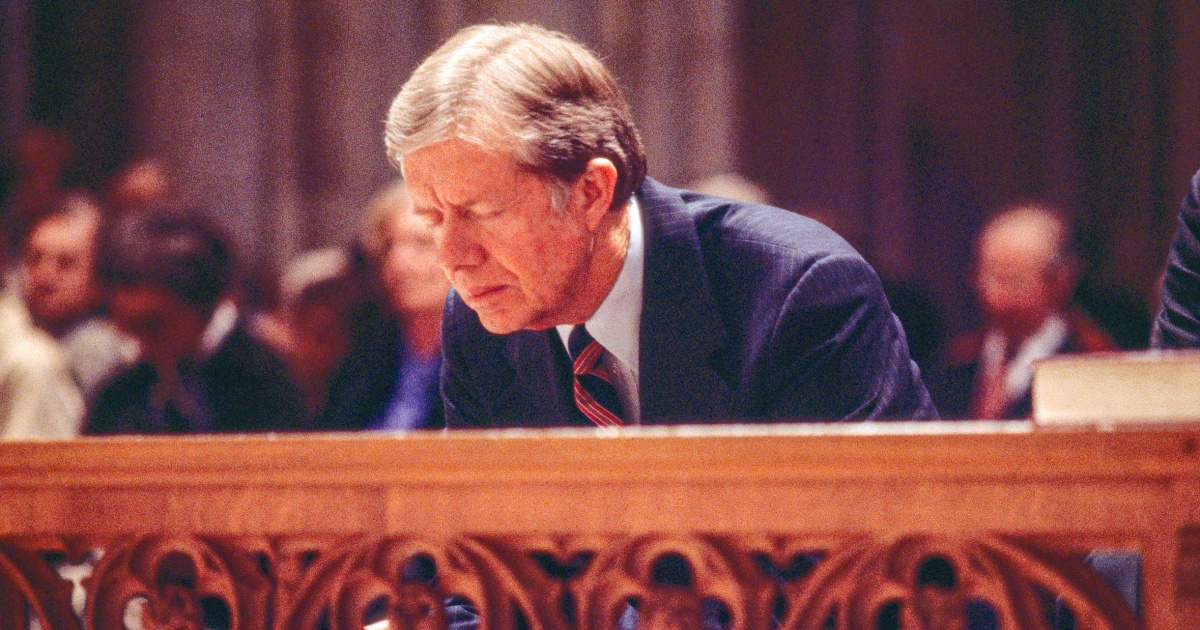Jimmy Carter and the Religious Right: A Political Transformation
Jimmy Carter's campaign was a turning point for American politics, marking the unprecedented visibility of evangelical Christianity within the national discourse. While Carter himself may not have intended to lay the groundwork for the religious right, his open declaration of faith provided a framework for political entities like Jerry Falwell's Moral Majority and the political ascension of Ronald Reagan, who adeptly utilized religious themes to consolidate conservative support.
The Rise of a New Political Force
Carter's unique strategy of intertwining faith with politics was revolutionary at the time. By discussing his deep-seated beliefs, he forged a personal connection with a segment of voters that had been largely neglected by previous political campaigns. This approach resonated deeply within the Christian community, paving the way for the eventual mobilization of religious groups in politics.
The Influence of Evangelical Voices
"I believe that faith and politics ought to be intertwined. That's why our forefathers fought so hard for freedom of religion – and it's something I intend to uphold by my actions and policies.” – Jimmy Carter
Jimmy Carter’s presidency highlighted the power of evangelical voices in political contexts. His faith-based discussions did not go unnoticed; they inspired evangelical leaders like Jerry Falwell, who later established the Moral Majority, a group aimed at influencing political matters through a religious lens. By leveraging Carter's strategy, Falwell began to shape a political landscape conducive to religious activism.
- Introduction of Religious Language in Campaigns
- Broadening Support among Christian Voters
- Increased Representation of Evangelicals in Politics
Ronald Reagan and the Continued Legacy
Building on Carter’s religious transparency, Ronald Reagan capitalized on this momentum during his presidential campaigns. Reagan emphasized traditional American values and heavily courted the evangelical vote, leading to a long-lasting relationship between the Republican Party and religious conservatism.
Explore Ronald Reagan's Influential Quotes
Carter’s inadvertent establishment of faith in the political sphere laid a fertile ground for future leaders who sought to leverage religious conviction as a means of winning votes. Even past his presidency, the framework he helped proliferate continues to influence political campaigns today.
Long-lasting Implications
As the years unfolded, the integration of religion and politics evolved, creating varied alliances and reshaping voter landscapes. Contemporary politics still echo aspects of the interplay Carter influenced, with today's discourse and policies frequently intersecting with religious undertones.
For those exploring the evolution of political-religious dynamics further, investigative reports, scholarly papers, and curated documentaries offer numerous insights into this pivotal period:
- Jimmy Carter's Evangelical Influence in Politics
- Documentary: Faith and Politics - The Carter Impact
This exploration presents a broader understanding of how Carter’s presidency became a cornerstone for modern-day religious political engagement.
The Political Landscape Today
Today, many political figures incorporate religious advocacy into their platforms in recognition of its enduring power. This strategy, rooted in Carter's era, impacts policy creation and continues to shape voter allegiance across the United States. The intersection of politics and faith remains as influential as ever, with Carter’s legacy at the foundation of socio-political structures.
From invoking moral leadership to influencing contemporary legislative agendas, Carter's inadvertent contribution laid the ground for exploring faith's role in governance.
